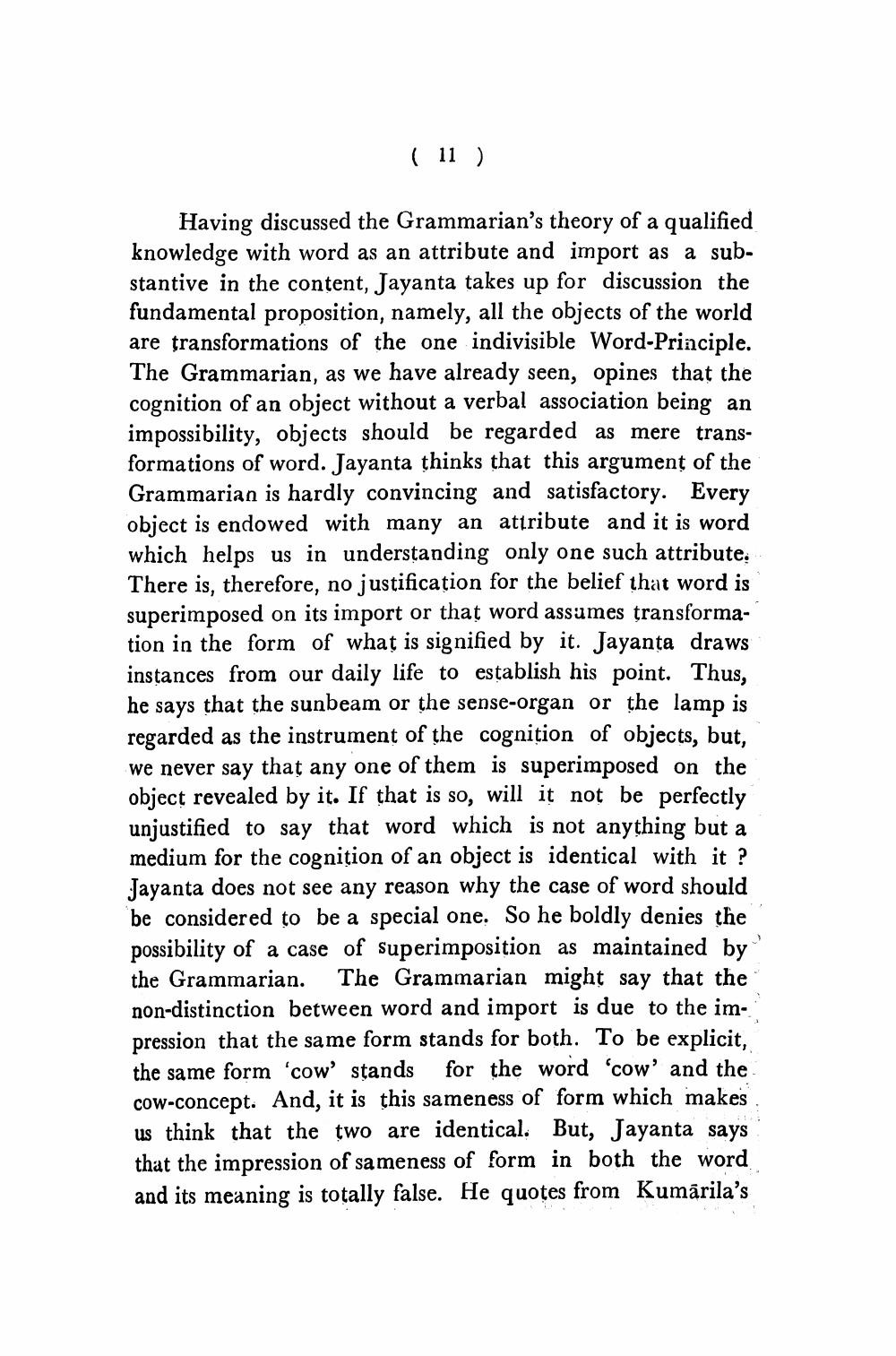________________
( 11 )
Having discussed the Grammarian's theory of a qualified knowledge with word as an attribute and import as a substantive in the content, Jayanta takes up for discussion the fundamental proposition, namely, all the objects of the world are transformations of the one indivisible Word-Principle. The Grammarian, as we have already seen, opines that the cognition of an object without a verbal association being an impossibility, objects should be regarded as mere transformations of word. Jayanta thinks that this argument of the Grammarian is hardly convincing and satisfactory. Every object is endowed with many an attribute and it is word which helps us in understanding only one such attribute. There is, therefore, no justification for the belief that word is superimposed on its import or that word assumes transformation in the form of what is signified by it. Jayanta draws instances from our daily life to establish his point. Thus, he says that the sunbeam or the sense-organ or the lamp is regarded as the instrument of the cognition of objects, but, we never say that any one of them is superimposed on the object revealed by it. If that is so, will it not be perfectly unjustified to say that word which is not anything but a medium for the cognition of an object is identical with it? Jayanta does not see any reason why the case of word should be considered to be a special one. So he boldly denies the possibility of a case of superimposition as maintained by the Grammarian. The Grammarian might say that the non-distinction between word and import is due to the impression that the same form stands for both. To be explicit, the same form 'cow' stands for the word 'cow' and the cow-concept. And, it is this sameness of form which makes us think that the two are identical. But, Jayanta says that the impression of sameness of form in both the word and its meaning is totally false. He quotes from Kumārila's




